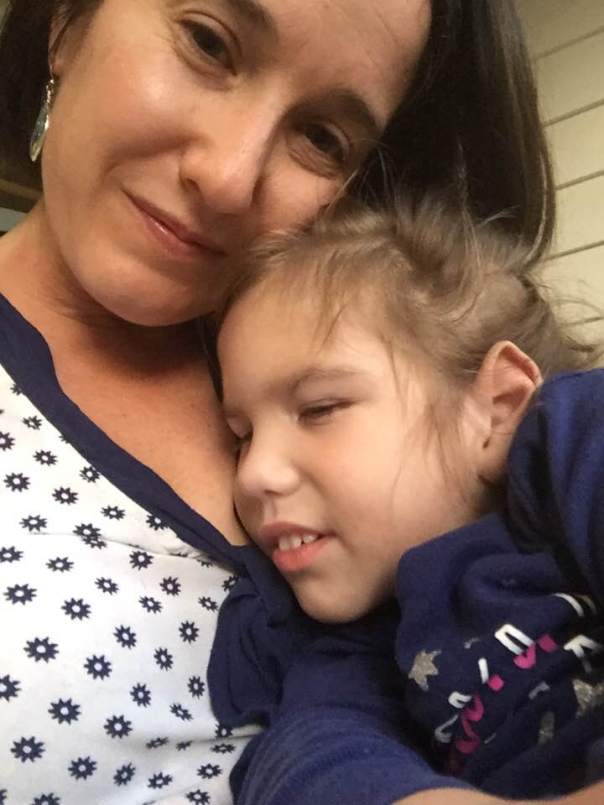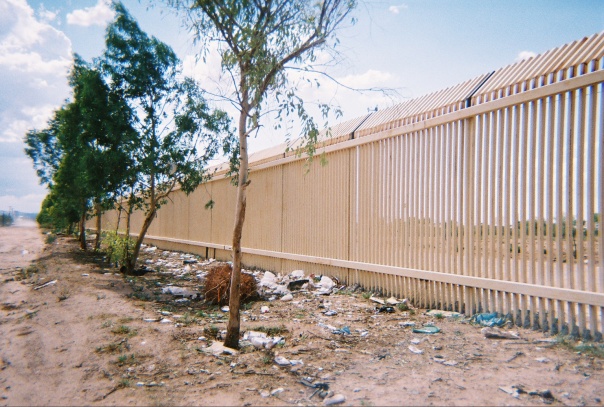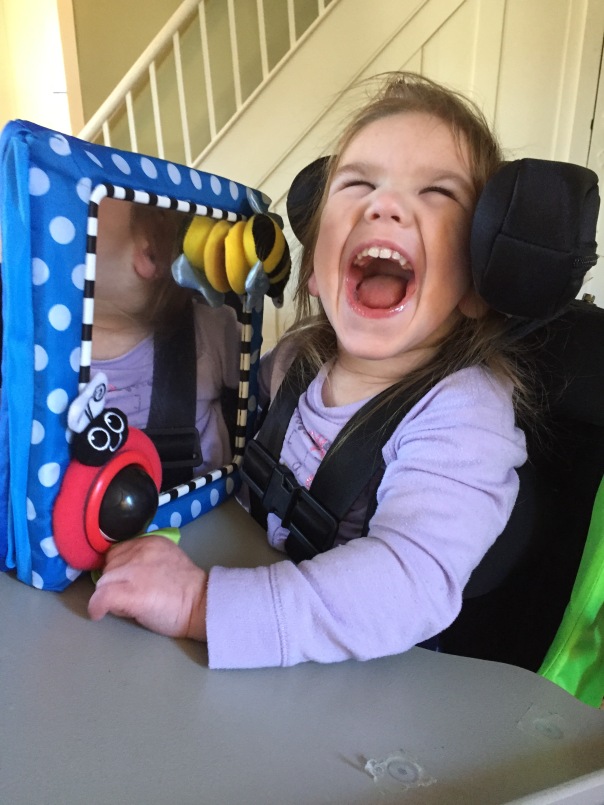It somehow comes out both flippantly and emphatically from the podcast co-host’s mouth one afternoon: “As a mother, your job is to grow them up and get them out,” she says, “to get them to be independent,” she clarifies.
I’m sure most people would agree with something like that, but in an instant, I’m on the outside looking in. I’m tempted to consider that if I’m not mothering a child who will be independent, what am I mothering her for? I’m tempted to believe that motherhood is decidedly more bottles and bullies and backpacks and basketball than surgeries and standers and hospital stays and wheelchair repairs.
But what if it’s not? What if, even if motherhood isn’t shared, even if it’s different, it can still be valid? And what if some of those mothers on the margins can expand our ideas of what it means to mother, and what it means to care, to love, and to grow in relationship with our kids if we just let them in?
Recently as I’m writing up the research we did with kids with disabilities who are nonverbal and their families, I’ve been re-reading a treasure trove of a book by the anthropologist Gail H. Landsman on Reconstructing Motherhood in the Age of Perfect Babies. In it, based on her research with hundreds of mothers, Landsman highlights the diminished motherhood of mothers of children with disabilities. They have failed, she says to follow “the culturally appropriate trajectory,” which amounts to raising up a “normal child” (2009:10, 109). Because ability is the “criterion for personhood” in the U.S., “the socially constructed reduced personhood of the [disabled] child is likened to the women’s experiences of motherhood” (50).
In her viral essay, “SuperBabies Don’t Cry,” writer, blogger, and mother Heather Lanier paints a similar picture. She talks about how she did everything “right” in her pregnancy and her child was born with a disability. She talks about how she blamed herself for her daughter’s disability, but she also talks about how blame suggests that we once had control in the first place. And underneath this blame often lies a fear of disability, of what is different. And what is different is emphatically part of being human. “Here’s the thing,” she writes. “If you buy into the false narrative that the body is controllable, that illness can always be prevented, then by proxy you are left with a disturbing, damaging, erroneous conclusion: the belief that a person’s disability is their fault.”
Like Lanier, part of my problem in seeing myself as a mother is that I’d subtly bought into some of these stereotypes about control, ease, and perfection, and so I don’t see myself as a mother so much as a keen strategist, a promising medical student, a scholar of disability, even. Maybe it’s because my early days as a mother were so bittersweet–snuggly and hopeful, yet tinged, marred by the words “failure to thrive,” an MRI at four months, vomiting, a neurological diagnosis, so I suddenly wondered where I would fit in. What could a mother bring to these difficulties? What’s a mother to a child who needs hospitals and eegs and feeding tubes to diagnose, treat, and survive?
Indeed, I remember the way I tried, as any mother would in those early days, so unsuccessfully to keep Lucia comfortable, to keep her from screaming, not just for her sake but for mine. If I could get her to stop screaming, we could all find some peace, I’d think, we could all be okay, maybe she would be okay.
And when I couldn’t even manage that, I knew I had failed. There was a moment where I had to drive all over town to find a pharmacy that would compound the medication that Lucia needed and on those drives she wailed in pain. As we sat just outside the pharmacy, me holding her as she cried, an older woman next to me chided, “You have to talk to her, mama. Talk to her, just don’t let her cry.” Oh if only my talking would have had any effect! If only my child knew I was there. And in that moment I felt that I had failed her as a mother. My mothering was a failure because my child was not okay, and while that wasn’t my fault, I could also barely offer anything to fix it, so sometimes retreating from her heart wrenching cries, willfully ignoring them, for instance, so I could keep my eyes on the road and my resolution all the way to the pharmacy in question or the hospital in many cases was the best I could do.
And of course, my best wasn’t just not good enough to make Lucia comfortable, it wasn’t good enough for me. I haven’t realized that until now that even though I’d navigated all the medical hurdles and the challenges with strength and grace, those triumphs didn’t seem to have much to do with mothering somehow, because behind the scenes everything still hurt. We were out of control. This was motherhood, too.
But gradually I realized that even though I couldn’t comfort her I could love her. I could accept her as she was. I was damn good at accepting her as she was, at loving her for who she is. She’d done the same for me somehow in those moments where I’d seemingly failed her, she’d always still receive me. There were more and more moments where as she opened up to the world I could see that she knew me and although I couldn’t fix things, she knew what it was like to have me nearby.
And so I began to write about this motherhood with all its aches and pains. After a semester of teaching on disability and raising my own child, I wrote an essay about a child who was not to be pitied, because she is a beloved child nonetheless. Today I realize that “I’m Not Sorry” was not just an essay about my daughter but also an essay about a kind of motherhood, my motherhood, which is not to be pitied but revered, respected, trusted, even included. Indeed, writers like Landsman and Lanier, both mothers of children with disabilities, have opened up a space where motherhood is getting just a bit broader and roomier for those of us who may not have thought we fit or had anything to add. Suddenly we wonder if the lessons from our motherhood have merit–if being both a mother and a nurse and a Medicaid expert and a therapist can be a tremendous combination, something that enhances the mother model rather than detracts from it.

On one recent morning when I’ve looked forward to working from home, stealing a Monday morning from students, distractions, and the need to jump out of my pajamas, Lucia begins to whimper and then wail in pain as her nurse begins to get her ready to school. And although Sylvia is fully capable of comforting her and getting her ready, I realize something so crucial: “but, I want to be with her in her pain,” I think. And I run down the stairs and I peer into her crib and I scoop her up, knowing I can’t fix it, but knowing perhaps more fully than I’ve known most things in my life that there’s nowhere else I’d rather be.
And I suddenly realize that what makes my mothering significant is these moments, too, these moments of strife and sorrow that I choose with this child, even when I can’t cure or comfort, but when I quietly accompany her, arrested of my own powers and control, to wherever we must go. I go with her faithfully and fully, because as hairy and fraught as it may sound, I’m grateful for even this moment because it is a moment with her. I grew to be a mother who learned through much strife and angst that it has never been my role to soothe or to fix it for my child, that I don’t control or choose the circumstances of our life, and without Lucia none of those lessons about loving or living would have been possible.
Thanks to this child, I am a mother, too.

